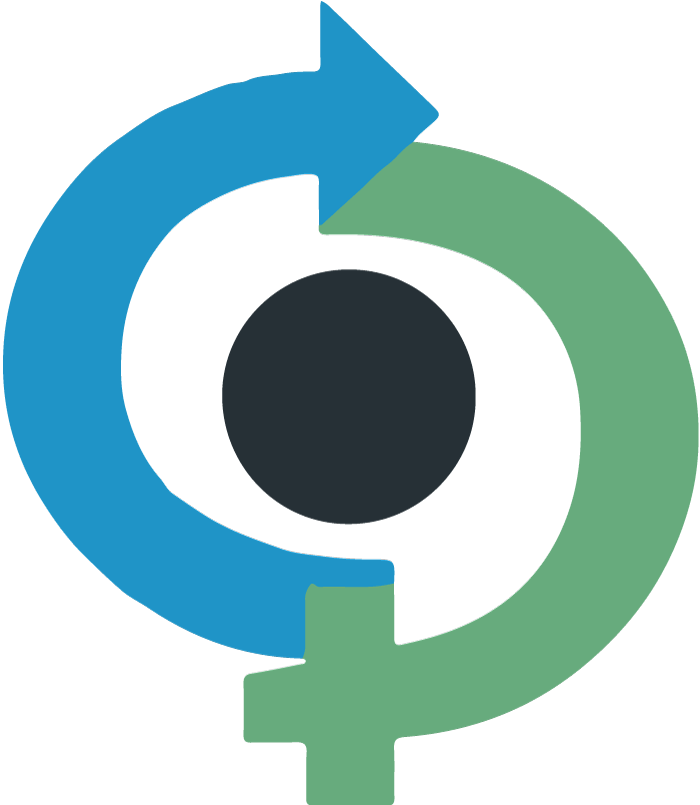 Since 1962
16 Countries
1.546 Members
Since 1962
16 Countries
1.546 Members
 Since 1962
16 Countries
1.546 Members
Since 1962
16 Countries
1.546 Members

This Spring, many members of ISPOG were travelling to meet colleagues and engage in meetings. On 2 February 2024, the first Nordic symposium of ISPOG was organized in Copenhagen by the Danish (Philip Keubel), the Swedish (Klass Abrahamsson) and the Dutch society (Jeroen Dijkstra). Gathered in the beautiful Ubuntu house, experiences from the three countries were shared about the organization of care and education from a bio-psycho-social perspective.
Halfway the day, we were surprised by the King’s guard that was marching through the street. As our incoming president, Chulmin Lee visited Aurora, Colorado in the USA for NASPOG’s meeting from 7-10 March 2024. He spoke about psychological stress and CIN. On 15 March 2024 during the annual meeting of the German society, an ISPOG symposium was held on trauma both for the patients and for the caregivers. Trauma was the overarching theme of the conference.
Speakers were Barbara Maier (AT), Marielle van Pampus (NL) and Dov Feldberg (IS) The Spring tour of ISPOG was concluded at the ESC in Bilbao on 2 May 2024 where an ISPOG session on sexuality and contraception was hosted. Vivian Pramateroff (DE) spoke about sexuality over the lifespan, Chulmin Lee about contraception and sexuality and M.Caroline Vos on female reproduction and embodiment. It is great to be able eachother again and share our knowledge and experiences.
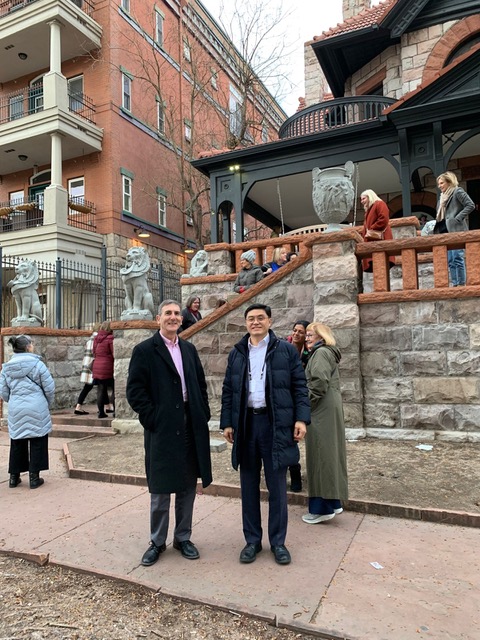

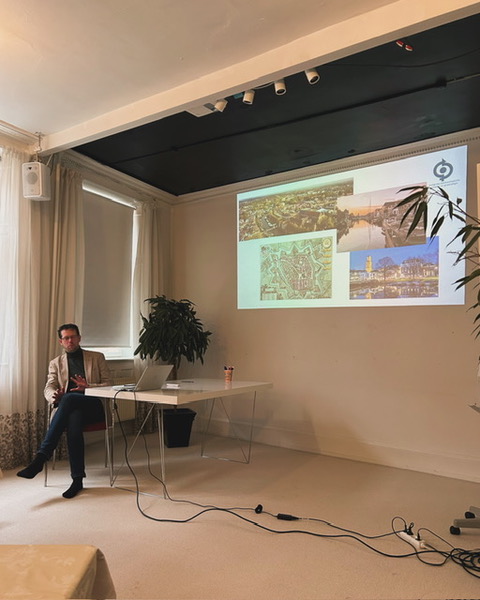
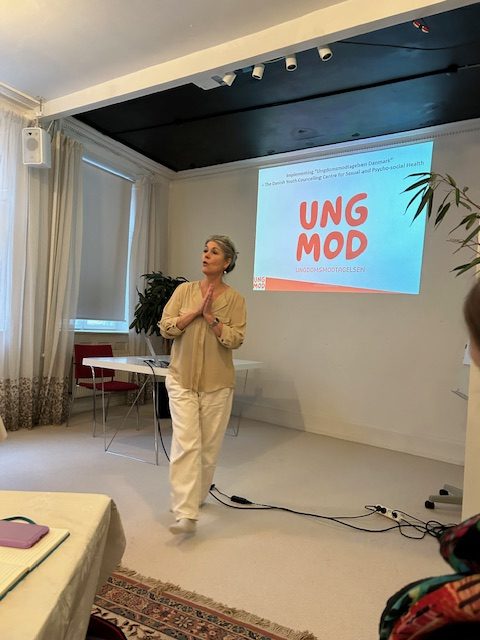
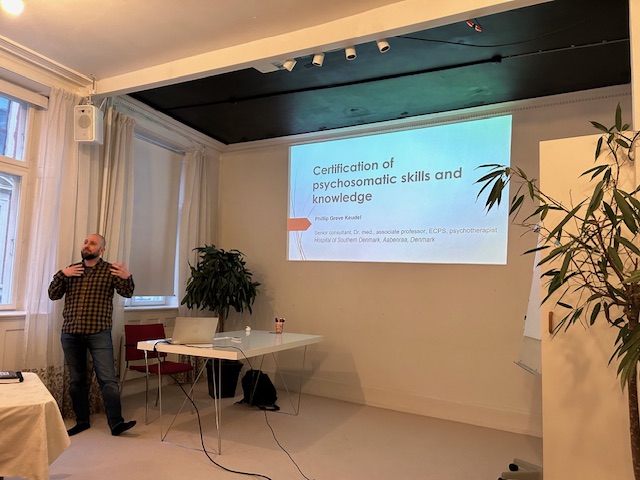


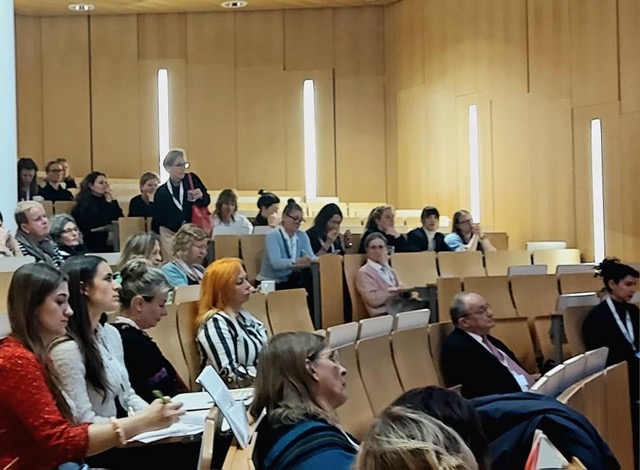


o. Univ-Prof. Dr. Med. Marianne Springer-Kremser (11.11.1940 – 26.02.2023)
It is with great regret that we have to inform you about the sudden and unexpected death of Marianne Springer-Kremser. With her we have lost the most important pioneer of psychosomatics in gynaecology and obstetrics in Austria.
Marianne Springer-Kremser founded the Austrian Society for Psychosomatics in Gynaecology and Obstetrics in 1982 together with Peter Kemeter, Beate Wimmer-Puchinger, Marianne Ringler and Hans Neumann, and held its presidency for 16 years. She was active in the extended board of the Society until her death.
In 1974, with the foundation of the Psychosomatic Women’s Outpatient Clinic as a liaison outpatient clinic of the University Clinic for Psychoanalysis and Psychotherapy (then: Institute for Depth Psychology and Psychotherapy) at the II Women’s Clinic, she took the first step, which was followed by a far-reaching commitment to women’s psychosomatics in various organisations such as the Austrian Society for Family Planning, the International Planned Parenthood Federation (where she was on the Governing Council for many years) and the Committee on Women and Psychoanalysis of the International Psychoanalytic Association.
Since 1991 she was a member of the Working Group for Equal Treatment of the University of Vienna and, since the foundation of the Medical University, its chairperson. From 1987 she succeeded Prof. Hans Strotzka as head of the University Clinic for Psychoanalysis and Psychotherapy at the Medical University of Vienna. After 11 years as assistant director, she was appointed full professor in 1998 and led the clinic until her retirement in 2009. Through her tireless and determined work in research, teaching and clinical practice, as well as through her political commitment, she played a decisive role in ensuring the clinic’s continued existence.
Her scientific work is diverse and covers all areas of women’s psychosomatics, sexuality, but also psychoanalytical topics and questions of treatment and training of medical students and psychotherapists.
As early as 1974, she published her first papers together with her husband Alfred Springer on the subject of sexual dysfunction. In their work ‘Symptomatic Spiral’, the two described a successful treatment of couples with sexual dysfunction using a modified method according to Masters and Johnson – a work that prompted Prof Strotzka to bring Marianne Springer-Kremser to his Institute for Depth Psychology and Psychotherapy. In the following years, she dealt with sexual problems with regard to various phases of psychoanalytical developmental psychology.
Already in these early works she pointed out the importance of interdisciplinary cooperation in the treatment of sexual dysfunctions. She pointed out not only the psychodynamics of the individual and the interaction in the couple relationship, but also the importance of the social situation for the positive experience or development of sexual disorders. She understood that sexuality can be something pleasurable for every woman in every stage of life, to which the woman has a right. And so Marianne Springer-Kremser has contributed significantly to sexuality being taken into account in psychosomatic medicine.
Marianne Springer-Kremser’s contributions in the field of psychosomatics are so diverse that only a few can be mentioned.
In 1979, together with Peter Kemeter, she wrote a paper on conflict analysis and gynaecological/endocrinological examination in secondary amenorrhoea. The interdisciplinary cooperation between gynaecologists and psychotherapists and the necessary psychosomatic competence of gynaecologists are particularly emphasised in this work. Based on a primarily gynaecological/endocrinological treatment of a young patient with secondary amenorrhoea, it is shown how the patient was able to develop ovulatory cycles due to the parallel psychotherapeutic treatment. Various conflict situations in connection with the attachment to primary caregivers and the associated difficulties in the development of a female identity are elaborated. Secondary amenorrhoea represented a compromise between the inner conflicts and offered her a way out, shifting them to a bodily-organic level that was easier for the patient to bear.
Marianne Springer-Kremser’s habilitation thesis, which was published as a book entitled “Psychosexuality and Gynaecology”, contains a theoretical review of psychoanalytic concepts on psychosomatic pathogenesis and a detailed presentation of psychoanalytic theories of femininity as well as considerations on the aetiology, psychodynamics and treatment in various clinical pictures from psychosomatics.
The modified psychoanalytic initial interview, described in detail in this book, with the aim of a structural diagnosis, as introduced by Marianne Springer-Kremser, is still the core of the psychoanalytic working method in the Psychosomatic Women’s Outpatient Clinic today. An evaluation study carried out in 1997 showed that this initial interview has a triage function for the indication of a certain type of psychotherapy and that the patients can actually use the recommended therapies. The relation to reality, the motivation for psychotherapy and the individual suffering pressure are identified as relevant criteria for the indication.
In 1991, the book on female psychosomatics “Patient Frau”, which is still current today, was published by Marianne Springer-Kremser together with Marianne Ringler and Anselm Eder.
Another of her focal points was the gender-related approach to understanding female problems, which she examined primarily in relation to the life cycle. The different psychological needs, fears and problems in the individual life cycles of women are related to physical and hormonal changes and specific indication recommendations result from this. To this end, she has linked issues of gynaecology with those of psychiatry and thus made significant contributions to the women-specific view of psychological problems.
Exemplary for this is: “Depression treatment: What do women need?” from 2006. In this work, the content and aetiology of depressive disorders are examined in relation to biogenetic, psychological and social conditions of women. The development of depression is understood as embedded in the female life cycle. In contrast to the male life cycle, the normal female life cycle is associated with significantly more frequent losses. Moreover, pregnancy, childbirth and the puerperium are accompanied by a constant threat of loss. The losses in the female life cycle are centred around the woman’s reproductive function. They begin in preadolescence with the change in sexual characteristics and body schema, as well as monthly blood loss. In the reproductive phase, the woman is confronted with the change in her body schema in pregnancy, the loss when the umbilical cord is cut, weaning and finally the loss of fertility in menopause. According to – Springer-Kremser – the complex interaction between female corporeality and its psychological representation with critical events in the female life cycle, as well as socio-cultural factors such as violence and discrimination, must be taken into account when creating treatment plans for women with depressive disorders. Together with Alfred Springer, she summarised and updated her findings in this regard in her book “Die Depressionsfalle” (The Depression Trap), published in 2013.
The central concern of all psychosomatic work is networking between the various professional groups, without which individual psychosomatic work cannot lead to success. From the beginning of her involvement with psychosomatics, M. Springer-Kremser has been concerned with the development of therapy and care concepts. She has passed on her knowledge in various further education curricula. In her elective subject: ‘Psychotherapeutic therapy of female psychosomatoses with consideration of ethical questions’, she has for many years offered students the opportunity to experience clinical psychosomatic work within the framework of participant observation at the Psychosomatic Women’s Outpatient Clinic. In addition, she has passed on her experience in countless lectures on women’s psychosomatics in various medical disciplines and in the context of her supervisory work. Her commitment to psychosomatic further education and training was dedicated to the psychosomatic curriculum of the Medical Association, which she designed and implemented with Peter Gathmann. Her advocacy of ethics in medicine, the co-founding of the Institute for Ethics in Medicine, as well as her work on difficult ethical issues, her work in the Ethics Committee of the Medical University of Vienna and her long-standing membership in the Bioethics Committee of the Federal Chancellor, are also part of her demand for the consideration of a psychosomatic perspective.
Marianne Springer-Kremser further developed psychoanalytic theories on femininity, as well as psychoanalytic teaching and research. She is credited with establishing and fighting for the consolidation of psychoanalysis as an essential building block in medicine. It is to her credit that psychoanalysis is now a fixed component of medical studies at the Medical University of Vienna.
Marianne Springer-Kremser’s commitment to psychoanalysis and psychoanalytic therapy as a method of treatment, both within the framework of the Austrian Medical Association and in the Psychotherapy Advisory Board, should also not go unmentioned.
Marianne Springer-Kremser was not only committed to psychoanalysis and psychosomatics, but above all to women themselves. This commitment was determined by the conviction that women can determine their sexuality, their reproductivity and their bodies themselves. In this stance, she campaigned for the exemption from punishment of abortion within the first 12 weeks in the debate on the period solution. She has fought for women’s advancement in equal treatment bodies and contributed to the recognition of women as empowered patients in her clinical work and lecturing activities. In 2007, she received the City of Vienna Prize for Medical Sciences and Popular Education for her life’s work. In 2009 she was appointed honorary senator of the Medical University of Vienna.

Dr. Péter Szeverényi, MD PhD Obstetrician – Gynaecologist, Clinical Psychologist (1949-2023)
Dr Szeverényi belonged to those few in the field of obstetrics and gynaecology in Hungary who represent the family-centred obstetrics practice, the psychosomatic approach in care – for long decades. His compassionate personality, respectful towards patients as much as towards colleagues, meant support and safety for everyone. We are all deeply saddened by the news of his passing away. Now we, his former and present colleagues and friends, pay our respect to him and to his remarkable career, on behalf of his patients, too.
Dr. Szeverényi received his medical degree in 1973 at the University of Medicine in Debrecen and started his career at the Women’s Clinic. With his carefully planned and established work programme he greatly contributed to the development and dissemination of psychosomatics in obstetrics and gynaecology. His activity, his ground-breaking work is a worthy continuation of the traditions of our university. He participated in numerous national and international conferences presenting the results of his research, as a pioneer in Hungary in those fields. Among them we must mention the study of psychological and sexual changes during pregnancy and postpartum, that of the psychological effects of childbirth on the couple after both of them being involved in the birth, as well as defining the prevalence of depression and anxiety in case of different gynaecological conditions, including the trailblazing research on the psychosocial aspects of healing, too.
The significant, positive effect of Péter Szeverényi’s decades-long activity is still remarkable today. It was upon his initiative that the fathers’ presence during birth, the rooming-in care facilities became everyday practices, and thus, the Clinic of Obstetrics in Debrecen was the first one in Europe to receive the esteemed Baby-friendly Hospital recognition. Moreover, he was also among the founders of the Institute of Behavioural Sciences in Debrecen. Thanks to his persistence, to his creativity our understanding of the professional personality and the culture and technique of the compassionate doctor-patient relationship have become enriched and more elaborate. His commitment was to be recognised in the founding and the 25-year long activity of the Hungarian Society of Psychosomatic Obstetrics and Gynaecology, as well.
I am proud to call myself a former student, a colleague and a friend of Péter’s. Although now we must say goodbye to him, I sincerely hope that his wisdom, his clever thoughts, his smiling and serene personality will stay with us for a long time. All of us who knew him, who could give birth under his care or could be born with his help must be grateful for his life.
Dr. Zsuzsa Török

Mechthild Neises, Barbara Maier and Vivian Pramataroff-Hamburger
This congress took place in a new dimension, i.e. both on-site and online, as a two-track hybrid event and also bilingual: German for the contributions of the 3 German-speaking societies and English for the contributions of the world societies.
Special impressions of the 4th three-country conference of the German and Austrian societies and the Swiss Working Group for Psychosomatic Gynaecology and Obstetrics remain in our memories. This joint congress already has a 12-year tradition and now took place for the fourth time in 2022. The parallel congress of the International Society of Psychosomatic Obstetrics and Gynaecology, ISPOG, took place for the 20th time and was also the Society’s 60th so-called diamond jubilee.
There were about 250 registered participants from 20 nations and five continents. 15 nations were involved in the preparation of the 20th ISPOG Congress through the International Scientific Committee. Scientific societies in this field have existed for decades in Sweden, England, Holland, Italy, Switzerland, Austria, Germany, Hungary, France, Spain, Israel, Korea, Japan, Argentina and the USA. Their members come from different disciplines and professional groups, especially gynaecology and obstetrics, psychiatry, psychology, nursing, midwifery and from the field of health promotion.
The congress was opened by Peter Hacker, City Councillor for Health, who addressed the important health policy challenges for Vienna, a city of 2 million. After his greeting message, which was a first women’s policy highlight, there was immediately another: the keynote speech by Heidi Kastner, Austria’s best-known forensic psychiatrist, who recently published a book on stupidity. Stupidity in the pandemic, which according to Kastner is much more dangerous than weapons, even more so when it is expressed arrogantly and is not open to correction, has brought us a crisis that has already lasted two and a half years. Heidi Kastner gave us scientifically in-depth insights into concepts of stupidity and its practical impact on all our lives.
Our hope that we could call the congress post Pandemic World had already been disappointed in the run-up. It was a great challenge to compensate for the many absences due to SARS-CoV-2 infections, quarantine, or having to stand in for colleagues who were ill or in quarantine.
The organizers wanted the congress to be a forum for cooperation, knowledge transfer and exchange of experiences – after the drastic experiences we have had worldwide with the corona pandemic – according to the motto: Pandemic World – Woman, Family, Society. In the German-language title there is the play on words “Pandemic World”, panic world.
This was the bracket for the scientific contributions on psychosomatic gynecology and obstetrics. In total, more than 100 scientific presentations were given, in the form of keynote lectures, symposia and short lectures, with varying reference to psychosomatic aspects in women’s lives, sexuality and sexual disorders, adolescence, menopause, pregnancy, childbirth and puerperium, mother-child bonding disorders, reproductive medicine, chronic lower abdominal pain, infectious diseases, transcultural aspects, traumatic experiences, consequences of migration and general content of psychosomatic research and further education. Many contributions referred to the psychological well-being of women in the pandemic, its influence on their relationship life, its potential for resilience and personal growth, the tightrope walk between distance and closeness and the consequences for the shaping of relationships in everyday practice and clinic life. A wide range was covered from evidence-based medicine, psychodynamic understanding of illness, medical, psychological and social work approaches as well as the influences of spirituality and culture on psychosomatics. Psychosomatics was thus presented not only in its scientific dimension, but also as an attitude understood in a multidimensional way.
The contributions on the pandemic deserve special mention: for example, the main presentations for Session 1 dealt with the topic of sexuality, pregnancy and birth in times of Corona and specifically with love, sexuality and everyday life of women’s lives in a state of emergency, presented by Kristina Hametner, the Women’s Health Officer of the City of Vienna. She gave us insights and perspectives on how we can best meet these challenges. Ulrike Kadi, psychotherapist and psychoanalyst, spoke about an old and new order of touch, the phenomenon of skin and its special meaning in times of social distancing. Mirijam Hall, a doctor from the Ottakring Clinic, reported on pregnancy, birth and the puerperium in the SARS-CoV-2 pandemic. She presented figures, data, facts, challenges and implications for pregnant women, women giving birth and young mothers, as well as the experiences of the caring team. In the group on the experience of violence in the delivery room, which was led by senior physician Susanne Hölbfer and assistant physician Maria Kastanek, both from the Ottakring Clinic, there were many exciting things that the two as well as the participants contributed – insights and suggestions on how to deal with women in labour without violence, but also between the professional groups.
Another main session dealt with the transgenerational processing of traumatic experiences – with crisis management between burden and ease. Philipp Kuwert from Stralsund described the psychosocial consequences of sexualised war violence. A war is not over when it is over. Experiences made in wars continue to have an effect, not only on those who have made them themselves, but also in the next generations, which Katharina Drexler from Cologne showed very touchingly in her contribution Trauma Therapy with the Introject – Healing Inherited Wounds. Petra Arck from Hamburg gave insights into her biopsychosocial/psychoneuroimmunological research work on the transgenerational processing of traumatic experiences.
In Workshop 4 on Secondary Traumatisation of Birth Attendants, both medical birth attendants and midwives were present in large numbers and complemented the presented study on Secondary Traumatisation of Birth Attendants, which had been conducted among Austrian and German birth attendants, as well as among Austrian midwives, with their own contributions and experiences as well as suggestions for improved care of second victims. The workshop was organised by Barbara Maier together with graduate engineer Heidrun Lechner, who is writing a master’s thesis on this topic at Sigmund Freund University.
The 3rd main session on the topic of Social Distancing – yesterday – today – what’s next? was organised by the Swiss Working Group with the focus on:
Walking the tightrope between distance and closeness – dealing with Corona in everyday clinical life in Switzerland. Sibil Tschdin (Basel), Relationships in times of pandemic – the potential of crisis for resilience and personal growth by Paqualina Perrig-Chiello (Bern) and the psychological state of women in the pandemic presented by Anki Ging (Bern).
In the English-language section of the congress, Main Session 1 dealt with the (Post) Pandemic World: The Impact on Women’s Mental Health during times of Pandemic presented by Mechthild Neises-Rudolf from Germany and the Transfer of Knowledge (fakes and facts) with regard to covid-positive pregnancies and deliveries and the impact on delivering women and staff by Barbara Maier from Austria, Ottakring Clinic. Ulrike Ehlert from Switzerland spoke on stress and resilience in a (post) pandemic world and brought in psychobiological considerations.
Other contributions in Symposium 1 dealt with research in the field of psychosomatic obstetrics and gynaecology, led by Sibil Tschudin. Symposium 2 focused on LGBT and family, with contributions from Chul-Min Lee on transgenders, Dov Feldberg on fertility perservation in transgender men and women, and Felicitas Falck on pregnancy and childbirth as transgender in Sweden. Workshop 1 by Jose Ramon Anderica Herrero from Spain dealt with Communicating bad news in Obstetrics, to name just a few speakers.
A special focus in international cooperation was dedicated to Symposium 3 “Education and improving psychosomatic POG worldwide”. The need for at least one common guideline for POG is great, as the discussion at the Education Symposium during the International Congress in Vienna 12-16 July 2022 showed. The invited speakers, delegates from 20 countries doing scientific research in the field of POG, had a lively discussion about the importance of education in POG in their countries. Although it is up to each individual country at which institutional level POG should be taught, a common guideline could be a great support in organising the curriculum worldwide.
Mainsessions 2, 3 and 4 had an obstetric focus. On Pregnancy and Childbirth, German and Dutch speakers gave talks on peripartum mental disorders and enhancement of mother-child bonding, among others. Mainsession 3 focused on trauma and childbirth, with contributions from the Netherlands (Marielle van Pampus), Switzerland (Antje Horsch) and Austria (Katharina Leitner-Dziubas). Mainsession 4 was related to Covid 19 in pregnancy, and the US-American women were represented with their focus on telehealth. The exchange was lively, stimulating and made us want more. It became clear how irreplaceable meeting in presence is.
All societies were able to hold their general meetings. In the elections to the ISPOG Board, Mechthild Neises-Rudolf was confirmed as President for a term of 3 years, Vivian Pramataroff-Hamburger in the office of Treasurer DE and Caroline Voss as Secretary General NL. Leroy Edozin moved to the position of Past-President GB, from which Sibil Tschudin CH resigned. In the election of a new President Elect, Chulmin Lee from Korea joined the Board.
All societies expressed their gratitude to the management of Sigmund Freud University. This aesthetically very appealing venue had been provided with a technically high level of equipment.
No congress without a social programme and all the more so in the tradition-rich metropolis of Vienna. A social highlight was the reception in the historic City Hall of Vienna by Kristina Hametner, the Women’s Health Commissioner of the City of Vienna.
The social evening in the old Viennese Hotel Stefanie allowed a happy get-together of members of the 3 German speaking countries as well as ISPOG with participants from 28 countries of the Global North and Global South. It was a wonderful evening.
These shared experiences lead to new events and projects:

Dr Lisa-Maria Kellermayr, a young Austrian physician, was a well-known champion of the COVID-19 vaccine. For over 7 months, she received hate-filled letters from those opposed to Covid vaccines and measures taken by the government to contain the pandemic. Anti-vaccination activists and coronavirus pandemic conspiracy theorists threatened to enter her premises, and torture and kill her and her staff. She suffered cyber-bullying. Reacting to the threats, she spent over €100,000 on security measures at her practice. Dr Kellermayr cried out for help, but the response of the political establishment and the police was nil or inadequate. Faced with continuing threats, debts and depression, she committed suicide.
The International Society of Psychosomatic Obstetrics and Gynaecology (ISPOG) sympathizes with Dr. Kellermayr’s family and professional colleagues and calls on governmental and non-governmental establishments to address the growing menace of hate and intolerance in modern society. Underlying this menace are mental health issues which, if left unaddressed, lead to various types of victim abuse, rape and violent crime. Professional bodies should take a lead in pressing for society to address what is becoming a ‘hate pandemic’.
This sad story underscores the importance of paying more attention of the physical and mental wellbeing of health care providers. Across the world, health care providers are confronted with verbal and physical threats and actual abuse. Other work pressures lead to burnout. We worry so much about the mental health of patients but not enough about that of care providers. A new paradigm is called for; one that incorporates the wellbeing of both care-giver and care-recipient.
With this statement we share the view of the Austrian Society for Psychosomatic Gynaecology and Obstetrics.

The beginning was a very emotional moment, the handing over of the it-piece – the gavel – with its long tradition of successful presidencies. I would like to take this opportunity to express my special thanks to Leroy Edozien, who handed over the insignia to me. Since October 2019, he has led ISPOG through times of pandemic, with all its limitations and restrictions with calm prudence, always seeking balance and compromise. These qualities have shaped the cooperation on the Board and impressed me – so it was a chance to get to know ISPOG from the inside during the three years as President-elect. It has been confirmed that I fit into this society, which represents the issues that have been close to my heart since the 1980s. The work of the newly elected or confirmed Board continues, with the new President Elect Chulmin Lee the fascinating task of bringing continents and their people together until the highlight in 2025, the planned ISPOG Congress in Seoul, Korea.
The impressions of the 20th ISPOG Congress in Vienna are still lingering. This conference was a successful attempt to bring together two traditions: the three-country conference (Austria, Germany, Switzerland) which brings together their national societies of psychosomatic gynaecology and obstetrics every three years in this cooperation and the special one in 2022 in combination with the ISPOG congress. I would like to thank in particular the German Society, DGPFG and its President Dr Wolf Lütje for their reliable and goal-oriented cooperation and also for assuming financial responsibility, as well as Mr Hellfried Böhme for the organisation in the preparatory phase and on site in Vienna, and all this in a language that many of us only learned in our school days – thank you for this effort. I would like to thank the three German-speaking congress presidents, this thanks goes to Univ.-Prof. DDr. Barbara Maier, Austria, Professor Martina Rauchfuß, Germany and Dr. Dorothea Hefti, Switzerland. All of them have contributed very interesting topics and speakers and thus contributed to the success of our joint congress, and we owe Barbara Maier the contact to the Sigmund Freud University in Vienna, a very special location, modern and perfectly equipped technically. For ISPOG, the basis of success is that all members in the Executive Committee and individual researchers were committed to the high quality of the contributions – so we had a lively exchange with enriching encounters with about 250 participants from 22 nations. At this point I can also say that the ISPOG family members were happy to be able to meet each other again in presence – we do not want to do without this in the future.
All main sessions were recorded, so there is still the possibility to listen to important topics. The Project ISPOG book on the Congress “Pandemic World – Influence on Woman and their families in their societies” as working title.
Part of our congress motto and picture is the story that we started with Nicolina, 12 years old when she submitted the picture. Her picture was chosen for the flyer and the programme, complemented with a little musical congress introduction. We finished with the picture of Hinari Koizumi, 10 years old when she drew it.

Your image unites us in the thought of “One World” and the call for peace has not been so urgent for a long time. Now we, the Board and the Congress team, after a slight post-Congress blues, say goodbye to a well-deserved summer break and wish you all, the Congress visitors and readers of our newsletters, a relaxing summer, with goals as you wish them and much optimism for everything in the future, stay healthy and faithful to us.

In 2021 the 50th annual conference of the DGPFG, the German Society for Psychosomatic Gynaecology and Obstetrics, the association with the largest number of members in the ISPOG, will take place. An anniversary event was planned in Berlin; that had to be reduced to a 2-day online event due to corona. A small consolation: All DGPFG members have just received the anniversary volume “Traditions and upheavals in psychosomatic gynaecology”, which was prepared for this occasion.
The look back begins in the book at the roots of psychosomatic gynaecology in Germany in the 19th century. The priority is the development of the two psychosomatic-gynaecological associations in divided Germany and the deliberately slow process of unification. Former chairmen and board members from East and West have their contribution, and those from earlier conference proceedings are reprinted, which cover the entire breadth of the discourse.
“50th annual conference of the DGPFG” has to be explained: The first “Psychosomatic training conference for gynaecologists” took place 50 years ago in Giessen, but the DGPFG has only existed under this name for 20 years. It emerged in 2000 from two strong roots: the East Society, founded in 1979 in Magdeburg / GDR (German Democratic Republic) as an interdisciplinary working group for gynaecology and psychotherapy, and the West Society, officially founded in 1980 in Mainz / FRG (Federal Republic Germany) as the German section of the ISPOG.
The two psychosomatic-gynaecological associations that were developing in parallel in East and West Germany had only a limited exchange for years, due to the political reality of the “Iron Curtain”. After the fall of the Wall in 1989, people met with a mixture of curiosity and respect. As shown in detail in the anniversary book, many possibilities for the merger were discussed for a long time until an acceptable solution was found after 10 years: Formal dissolution of both associations and subsequent merger into a new company with a new name and a new logo.
Back to the beginnings: In West Germany, the seminar meetings took place annually, initially in Mainz, from 1982 onwards the multi-day event toured different cities. The structure is characteristic and has been retained to this day because of its success: thematically-centred lecture blocks alternate with work in small groups. The confrontation with gynaecology under National Socialism accompanied the conferences for many years. The interest in psychosomatics was immense: 700 participants were welcomed at the conference in Munich in 1990, and more than 1000 members had joined the association within 10 years.
The nucleus of the East German Association were seven dedicated gynaecologists. The board of directors of the Society for Gynaecology and Obstetrics of the GDR initially did not want to accept this establishment of a new working group “from below”; but it was recognised as an AG by the Society for Medical Psychotherapy. The slowly and steadily growing group was concerned with scientific and practical exchange. A training curriculum for psychosomatic gynaecology was developed early on, and it met with great interest. From 1984 onwards, regular conferences took place at which controversial topics were taken up at an early stage, such as 1992 “Violence in the family.” The tradition of opening the conference with a keynote lecture by a writer, begun in 1984 with the invitation of Christa Wolf, was maintained with great success.
In 2000, the “Unification Conference” took place in Dresden, at which the joint general meeting approved the prepared “merger agreement”. The DGPFG can look back on an eventful history, as I have found time and again when collecting the texts for the anniversary volume. The DGPFG can look back on an eventful history, as I have found time and again when collecting the texts for the anniversary volume. In the meantime, the trend towards psychosomatics subsided somewhat, but we have been welcoming more younger colleagues again in recent years. And we are pleased that interested parties from other professional groups – psychological psychotherapists, midwives, sex therapists, physiotherapists – appreciate the bio-psycho-social approach and take part in our conferences.

Barcelona 26 Aug 1934 – Noordwijk 10 Dec 2020
The year 2020 will be remembered because of the COVID19 pandemic of which we are suffering the third wave now, but for us, the POG family, it will be the year of the farewell to a man to remember, one of the ISPOG founding fathers, our dear Eylard V. Van Hall.
ISPOG would not be what it is without his outstanding participation. I am sure many of us have received his generous leadership, his legacy, his love for life and for our profession.
As a sample I ‘ll summarise my own experience with him, I was born in Argentina and received most of my medical training in Buenos Aires 1969-77. Freud disciples had emigrated there during the Nazi persecution and penetrated the medical education.
So I had learned to value the importance of psychosocial in Ob Gyn assistance when a cruel dictatorship coupled with economic difficulties, plus the presence of relatives in Alicante made me come to Spain in 1977 in order to learn Ultrasound and obtain the specialist degree.
I felt lonely and “different” from my colleagues, until in 1982 I went to Granada’s Clinical Hospital to meet Prof Vicente Salvatierra who was the only respected and experienced professor in Spain interested in POG. In the library, the sky opened up as I found the first editions of JPOG, my feeling of isolation turned into joy, thanks to Eylard, the Editor of the Journal and President of ISPOG and the colleagues who published the kind of papers I was desperately needing to understand I was not a strange and excentric specialist.
So as soon as I could, in 1985 I went to visit Eylard in Leyden, and new discoveries appeared before me. Eylard was born In Barcelona, lived there until his adolescence, spoke fluent Spanish and was willing to help the foundation of POG Societies in Spain and Argentina, both happened with his presence. In 1986, in Spain, lead by Prof Salvatierra and in 1992 in Argentina, lead by Prof. Carlos Gurucharri, ISPOG president 2000-03.
The door of Eylard´s office had a notice: “When god created man she was only joking” (I only knew male chauvinist Chief professors until then). Eylard had very clear ideas about why ISPOG and the JPOG were needed by Ob Gyn education globally. He had a strong appeal for open-minded colleagues and tremendous ambassadorial skills which guided me so much afterwards.
I recommend you read his thoughts in his own words. (References 1 to 3)
Eylard was always sensitive to art, willing to listen, a warm host successful in making you feel at home, also a very wise adviser. I will never forget my visit to his Dutch home, preparing raw fresh herrings we had bought on the way from the station, well accompanied by a soft Dutch Gin. And his catalán stone house in the Ampurdan where his gifted wife painted, sculpted and taught.
Dear Maia, please receive our condolences and gratitude.
I was so happy to embrace him (and Manfred Stauber of course) in Berlin at the beginning of my term as ISPOG president. Sadly, this was our last hug.
Goodbye dear Eylard.
Thank you so much for enlightening and leading all of us.
Carlos Damonte Khoury
Alicante, Spain, December 2020
References
This Spring, many members of ISPOG were travelling to meet colleagues and engage in meetings. On 2 February 2024, the first Nordic symposium of ISPOG was organized in Copenhagen by […]
Read more »o. Univ-Prof. Dr. Med. Marianne Springer-Kremser (11.11.1940 – 26.02.2023) It is with great regret that we have to inform you about the sudden and unexpected death of Marianne Springer-Kremser. With […]
Read more »Dr. Péter Szeverényi, MD PhD Obstetrician – Gynaecologist, Clinical Psychologist (1949-2023) Dr Szeverényi belonged to those few in the field of obstetrics and gynaecology in Hungary who represent the family-centred […]
Read more »